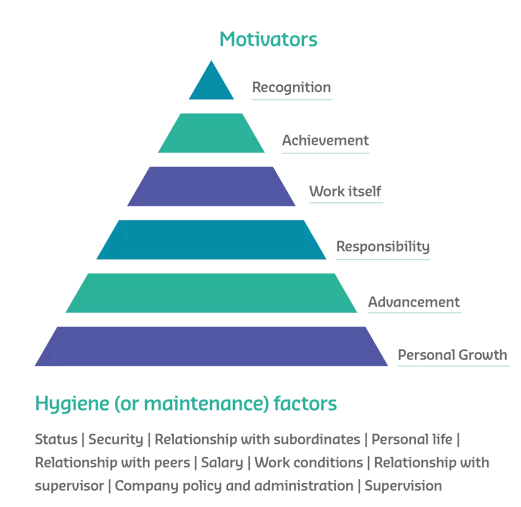
Reducing Stress by Increasing Recognition
9 May 2023
Stress is a hot topic, no matter the time of year, but with April dedicated to Stress Awareness, it’s good to keep the momentum going. During this blog, we'll uncover what factors are increasing your employees' stress levels, and the role recognition plays in alleviating it.
With that in mind, be sure to download our Burnout Cheat Sheet, an incredibly helpful resource for HR professionals and employers. Not only does it help you recognise the signs of employee burnout, but it also takes you through the actionable steps that will reduce or prevent it.
The guide also covers the five stages of burnout and where it all begins: stress. We then list some of the factors that cause employee stress, including when employees fear that their work is never good enough or feel underappreciated in their role.
Both situations can occur when a business is impacted by talent shortages, which we’ll explore further here.
Talent shortages = increased stress
Many factors can cause employees’ stress levels to rise, not least the cost-of-living crisis, which is causing nationwide financial anxiety.
However, other workplace-based factors add to stress levels. While we encourage employers to build a culture of wellbeing and support to boost employee resilience, recognition also plays a part.
“4 in 5 employers globally report difficulty finding the talent they need in 2023… more than five times the difficulty in 2015 (14%).”
These figures, taken from a 2023 report produced by Manpower Group, suggest that UK talent shortages have reached a ’17-year high.’ The consequences of talent shortages are felt across the business, impacting productivity and people.
Impact of talent shortages on employees:
-
Increase in workload
-
Taking on responsibilities above their pay grade
-
Insufficient support and management
-
Increased risk of stress-related illness
There will always be times when employees are asked to do more. When colleagues are off ill or on annual leave for a short while – team members generally step up to cover their tasks. However, when it’s more than short-term, and roles remain vacant for extended periods, it negatively impacts the rest of the workforce.
Less people = more work
When employees have more work than they can manage because they’re filling a gap, recognition is essential. Without it, they’re likely to feel unappreciated in their role.
These extra efforts must be acknowledged. It may not ease the daily pressures, but recognition – especially if followed by reward – will boost the motivation and drive of an employee going above and beyond.
Never underestimate the power of a ‘thank you’ or how meaningful gifts and rewards boost morale and support employee wellbeing.
Additional responsibilities
Giving employees additional responsibilities can be an opportunity for them to grow and develop, especially if you've provided the appropriate training and given them the tools they need. However, stress will increase if an employee’s covering tasks that a more senior colleague should perform because of talent shortages and they haven’t received adequate training.
There are several steps to take, employee development being the first, but the reality is that if a business is undergoing an expensive and lengthy recruitment process, it may not be able to afford to pay for additional training.
Recognise and reward!
Employers must recognise and reward the achievements of employees covering a more senior role. However, acknowledging their limitations is also a must. If an employee covers managerial tasks but hasn’t received managerial training, the business must reduce its expectations and not put too much pressure on the employee to perform.
The power of recognition
Recognition isn’t the only solution to work-related stress, but it ought to be part of an organisation’s wellbeing and people strategy.
We often refer to the research of American psychologist Frederick Herzberg since his theories made him one of the most influential people in business management.

Herzberg was the first to show that satisfaction and dissatisfaction at work nearly always arose from different factors and were not simply opposing reactions to the same factors, as previously believed. He indicated that certain factors truly motivate (motivators), whereas the absence of others led to dissatisfaction (hygiene factors). These hygiene factors must be addressed and resolved before motivators can be effective.
The hygiene factors listed relate to the matter we’re discussing, such as work conditions, salary, supervision, and relationships with supervisors.
In an ideal scenario, the hygiene factors will be in good shape for the motivators to be at peak effectiveness. However, we’re not talking about the perfect scenario. We’re talking about the current environment, which for many employers, is having to fill the gaps left by the talent shortage with their existing workforce.
Recognition is at the top of the hierarchy and within the business’s control, even during times of employee shortages and crisis.
Pluxee UK's inclusive reward & recognition solutions
There’s more to reward than financial gain, but with salaries needing to stretch further to cover the rising cost of living, financial rewards are more than just a thank you.
Pluxee Card
Meet our Pluxee Card: one of our most versatile employee benefits. As a cashback earning card, it’s a financial wellbeing benefit and a recognition prepaid card. As a reloadable card made from recycled PVC, it’s a sustainable and economical solution. Once it’s in your employees’ hands, you can top it up whenever you want to recognise and reward them. The fact that your employees can earn up to 15% cashback when they use it with participating retailers is a bonus.
eVouchers
Brilliant for ad hoc rewards, birthdays, and Christmas, our eVouchers are an inclusive employee reward, giving access to the widest choice of retailers. Whether your employees use them to help towards the cost of the weekly shop or a treat for the family, our eVouchers ensure your employees feel recognised and appreciated.
Pluxee UK has over 60 years of experience in the employee engagement and wellbeing industry. We’re so much more than an employee benefits provider, and we’re committed to providing resources that help you help your people, sharing insights on the issues impacting you today.
Arrange a call with one of our employee wellbeing and engagement experts to discover how we can empower your people and boost your business.





